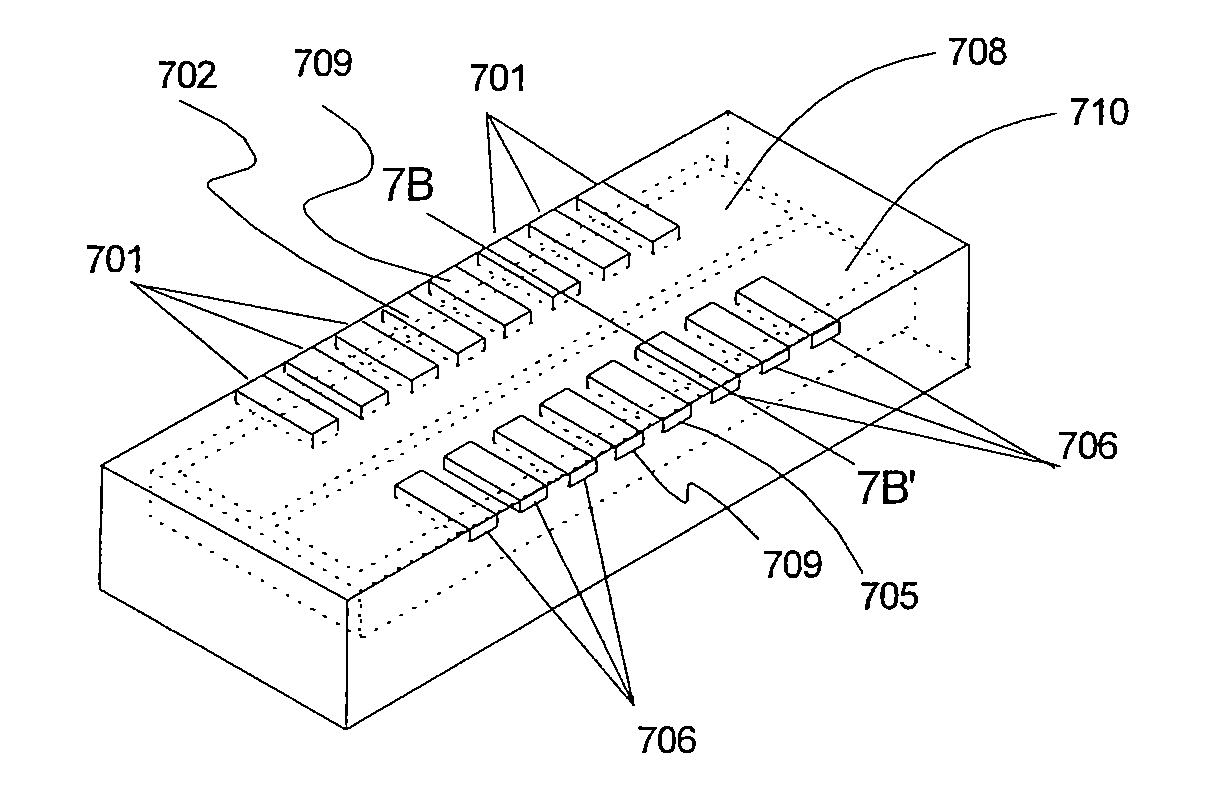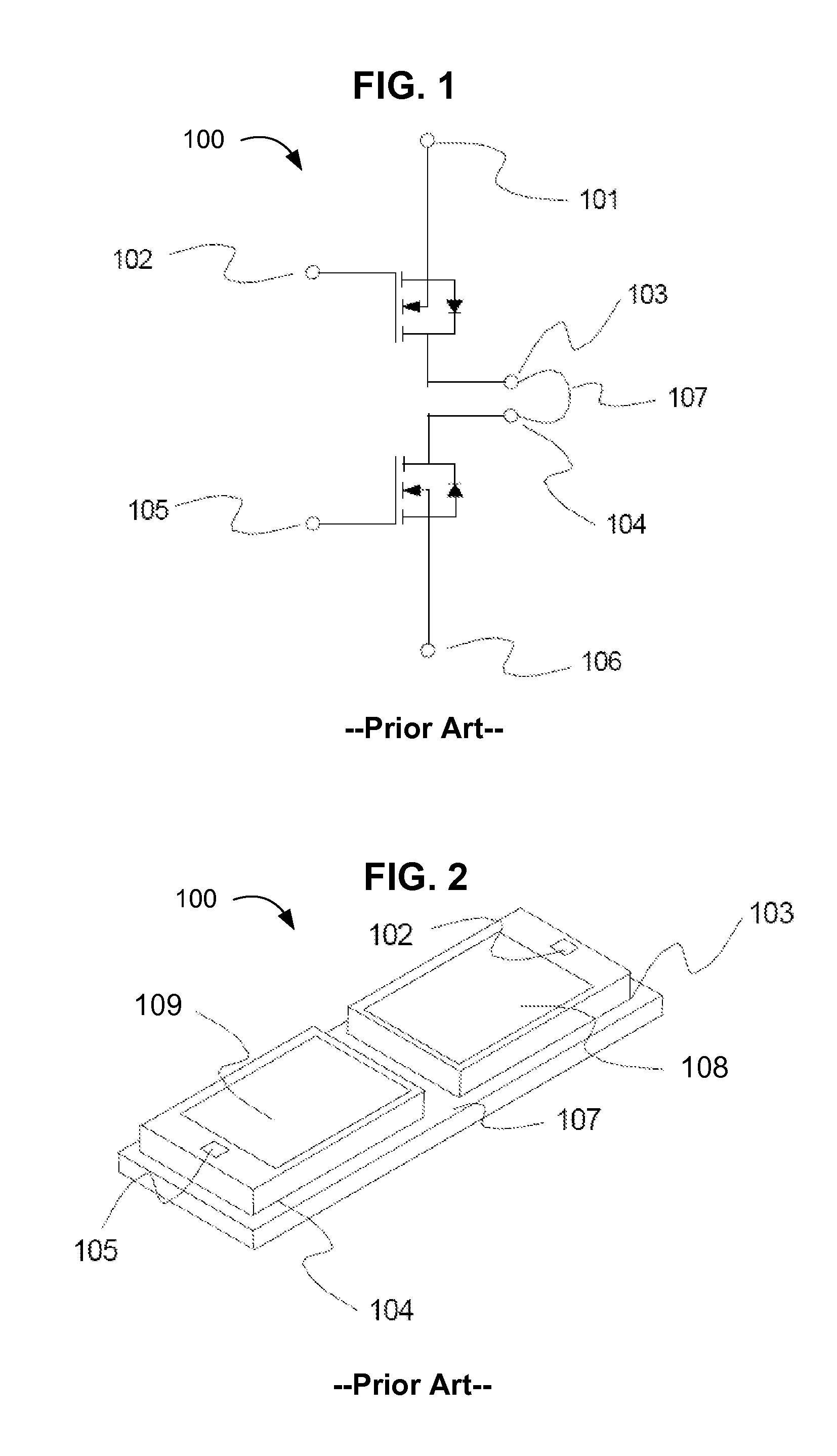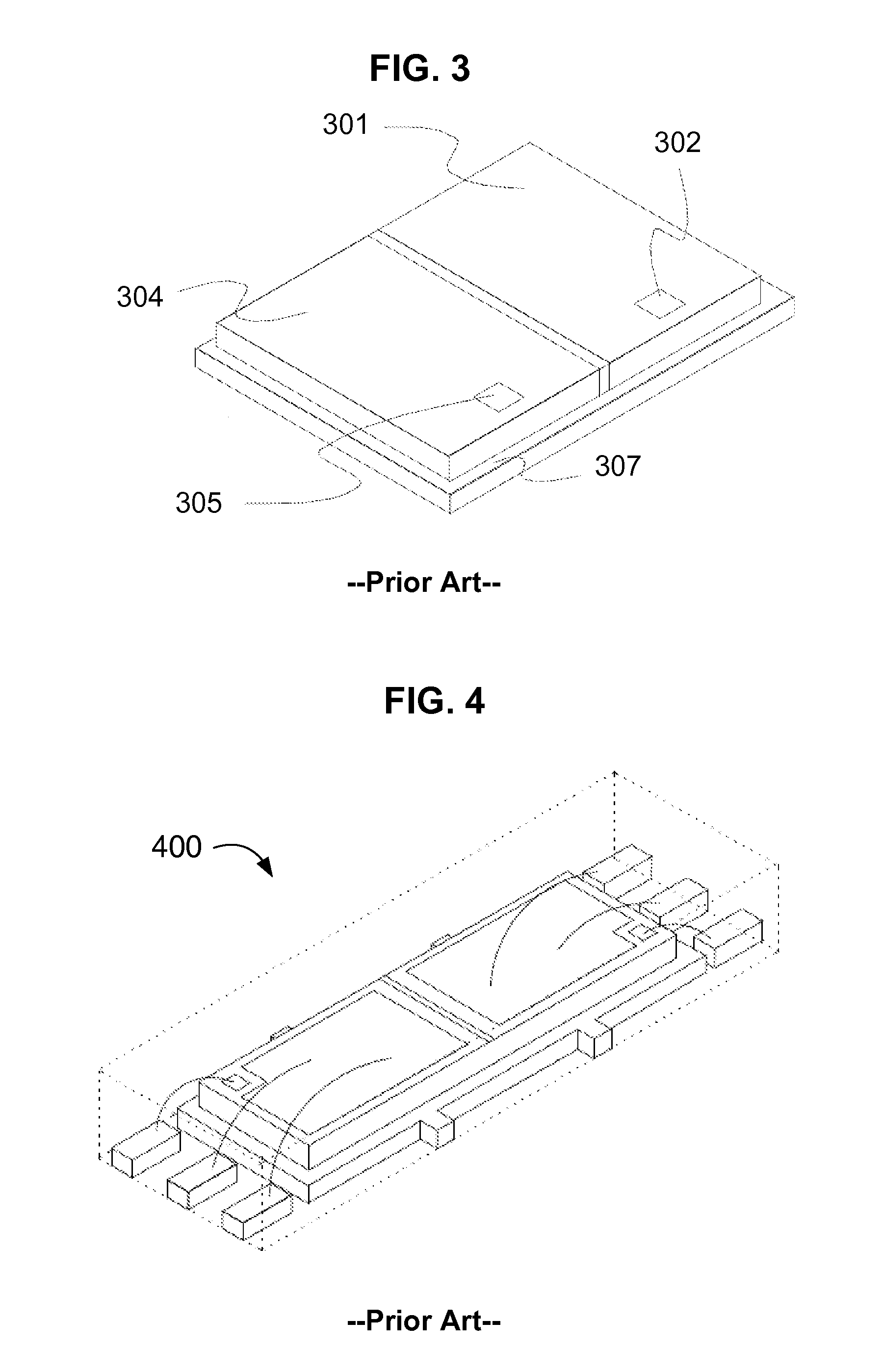Bi-directional, reverse blocking battery switch
a reverse blocking, battery switch technology, applied in the direction of secondary cell servicing/maintenance, basic electric elements, safety/protection circuits, etc., can solve the problems of reducing the total switch resistance and resistance of a given die area, so as to reduce the total switch resistance and reduce the resistance enough. , the effect of improving the die layou
- Summary
- Abstract
- Description
- Claims
- Application Information
AI Technical Summary
Benefits of technology
Problems solved by technology
Method used
Image
Examples
Embodiment Construction
[0029]Embodiments of the present invention relate to an improved die layout for a bi-directional and reverse blocking battery switch. According to one embodiment, two switches are integrated in a common bulk Drain, side-by-side (as opposed to end-to-end) in a die package. This configuration reduces the total switch resistance, and often avoids the use of backmetal in order to meet resistance specifications. Elimination of backmetal reduces the overall cost of the die package, and removes the potential failure modes associated with the manufacture of backmetal.
[0030]Embodiments of the present invention may also allow for more pin connections and for an increased pin pitch. This results in redundant connections for higher current connections, thereby reducing the electrical and thermal resistance, and minimizing the manufacture / implementation costs of the die package. Embodiments in accordance with the present invention can also exhibit a size and form factor that fits battery cells, ...
PUM
 Login to View More
Login to View More Abstract
Description
Claims
Application Information
 Login to View More
Login to View More - R&D
- Intellectual Property
- Life Sciences
- Materials
- Tech Scout
- Unparalleled Data Quality
- Higher Quality Content
- 60% Fewer Hallucinations
Browse by: Latest US Patents, China's latest patents, Technical Efficacy Thesaurus, Application Domain, Technology Topic, Popular Technical Reports.
© 2025 PatSnap. All rights reserved.Legal|Privacy policy|Modern Slavery Act Transparency Statement|Sitemap|About US| Contact US: help@patsnap.com



